The second year of life is a whirlwind of linguistic milestones. As toddlers begin to explore their environment, they’re also making significant strides in their speech and language development. This dynamic year sets the stage for complex linguistic achievements, and your role as a parent is integral in facilitating this growth. Whether your child is at this chronological age or developmental level, this article will share insights into speech and language development during the second year of life and offer fun strategies to use at home.
Speech and Language Development
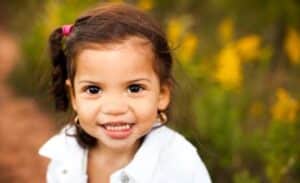
Receptive Language
This is about how a child understands or comprehends the language they hear. Example: When you ask, “Where’s the cat?” and your toddler looks at or points to the cat, they’re demonstrating receptive language.
Expressive Language
Expressive language refers to how a child conveys their feelings, thoughts, and ideas using sounds, gestures, or words. Example: Your toddler might indicate a toy and say “want” to show their desire for it.
Speech
This involves the verbal expression, or how sounds, words, and sentences are pronounced and structured to convey language. Example: Your toddler trying to pronounce “water” as “wawa” shows their speech development.
Receptive, Expressive Language, and Speech Milestones: Second Year
| Age | Receptive Language Milestones | Expressive Language Milestones | Speech Milestones |
| 13-15 months | – Shows interest in pictures in books – Recognizes names of a few familiar objects | – May have a vocabulary of 4-6 words – Uses simple gestures, like shaking head “no” | – Enjoys making sounds to accompany play |
| 16-18 months | – Points to several body parts when asked – Understands basic everyday routines | – Vocabulary expands to about 10-20 words – Starts to “sing” along to familiar tunes | – May have a mix of clear and unclear speech |
| 19-21 months | – Can identify common objects in pictures – Begins to follow two-step commands | – Occasionally combines two words, e.g., “more juice” or “big truck” – Frequently imitates words and sounds | – Continues to refine the pronunciation of words |
| 22-24 months | – Understands “mine” and “his/hers” – Listens to short stories | – Has a vocabulary of 50 or more words – Begins forming short sentences | – Speech is becoming clearer, with around 50-60% being intelligible to familiar listeners |
Techniques to Enhance Speech and Language Development
- Building Language into Daily Routines: Incorporate language learning seamlessly into your toddler’s everyday activities. For instance, during mealtime, you can talk about the colors, shapes, and names of different foods. This method helps children learn new words and concepts naturally.
- Engaging in Regular Conversations: Make it a habit to have frequent, meaningful conversations with your toddler. Discuss their day, feelings, and interests. This regular interaction boosts their vocabulary and understanding of language.

- Encouraging Back-and-Forth Dialogue: Foster a two-way communication with your toddler. If they make a simple statement, respond in a way that extends the conversation. For example, if they say “big truck,” you might reply, “Yes, that’s a big red truck.” This not only validates their speech but also introduces them to new words and concepts.
- Expanding on Their Language: When your child speaks, build on their language by adding a word or two to give more detail. This encourages them to think more deeply and learn how to express themselves with a richer vocabulary.
- Fostering Reading Habits: Continue to read to your toddler regularly, focusing on interactive books and picture books. Ask questions about the story and pictures to engage them further. This habit not only improves their language skills but also fosters a love for reading.
- Playing Pretend: Encourage role-playing games, which are great for developing vocabulary and imaginative use of language. These activities allow children to experiment with different words and scenarios, enhancing their linguistic abilities.

- Encouraging Playdates: Social interaction with peers is crucial for your toddler’s language development. Playdates provide opportunities for your child to communicate, share, and learn from others, boosting both linguistic and social skills.
- Singing Songs and Nursery Rhymes: Songs and rhymes are excellent tools for teaching rhythm, rhyme, and language patterns. They are memorable and fun, making it easier for toddlers to learn and practice new sounds, words and phrases.
- Praising Efforts, Not Just Accuracy: Acknowledge and celebrate your toddler’s attempts to use new words or construct sentences, even if they aren’t said perfectly. This encouragement fosters a positive attitude towards learning, experimenting with language, and communicating.
When to Seek Help
Between 12 and 24 months, children undergo significant speech and language development. Parents should be aware of certain signs that may indicate a need for professional consultation and/or evaluation. Here are some things to look for during this period:
- Limited or No Babbling
- Lack of Gestures
- Reduced Eye Contact.
- Lack of Response to Name
- Limited Number of Words Understood and/or used by 18-months-old
- Not Yet Combining Words by 24-months-old
- Repetitive or Unusual Speech Patterns
- Difficulty Following Simple Familiar Instructions by 18-24 months
- Loss of Previously Acquired Speech or Language
- Preference for Objects Over People
- Difficulty Imitating Sounds Expected for Age
- Decreased Social Interaction
- Overuse of Certain Words or Phrases Including Lines from a Video
- Inconsistent Response to Voices, Sounds, and Routine Vocabulary
- Frustration or Behavioral Issues Related to Communication
Remember, each child develops at their own pace. However, if you notice some of these signs or you are concerned about your child’s speech and language development, consulting a pediatrician, a speech-language pathologist, or your local Early Intervention program is advised. A speech-language evaluation and/or a comprehensive developmental assessment may be helpful.
FAQs
Q: What if my toddler isn’t speaking as much as their peers?
A: Every child has their unique pace. However, if you have concerns, it’s good to consult a pediatrician, a speech-language pathologist, and your local Early Intervention program.
Q: Should I correct my child’s mispronunciations?
A: Rather than direct correction, model the correct pronunciation by what they intended to say. Do not require them to repeat. Hearing your model is helpful enough.
Q: Can I introduce my toddler to a second language?
A: Absolutely! The earlier, the better.
Additional Resources
- ASHA’s Developmental Milestones: Birth to 5 Years
- Speech and Language Developmental Milestones | NIDCD (nih.gov)
- Language development in children 1-2 years | Raising Children Network
- Supporting Language and Literacy Skills from 12–24 Months | ZERO TO THREE
Summary/Conclusion
The second year is bustling with linguistic energy, with your child’s vocabulary and grammar skills moving forward. Whether your child is at this phase according to their birthdate or developmental level, embrace it with fun, patience, support, encouragement, and awareness as you set a sturdy foundation for your child’s next steps along their communication journey. And if you have concerns about your child’s development, never hesitate to reach out to an Early Intervention Specialist.
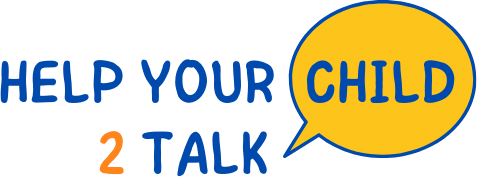
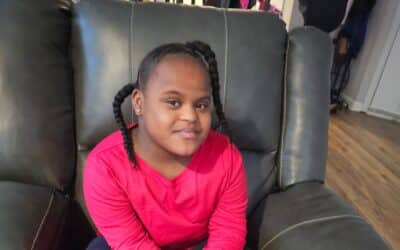
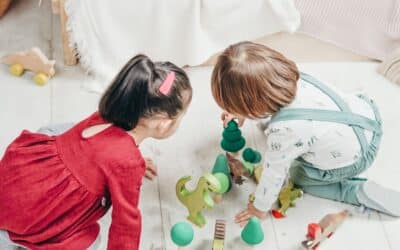
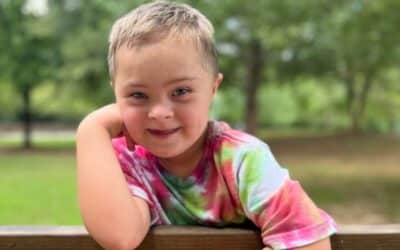
0 Comments